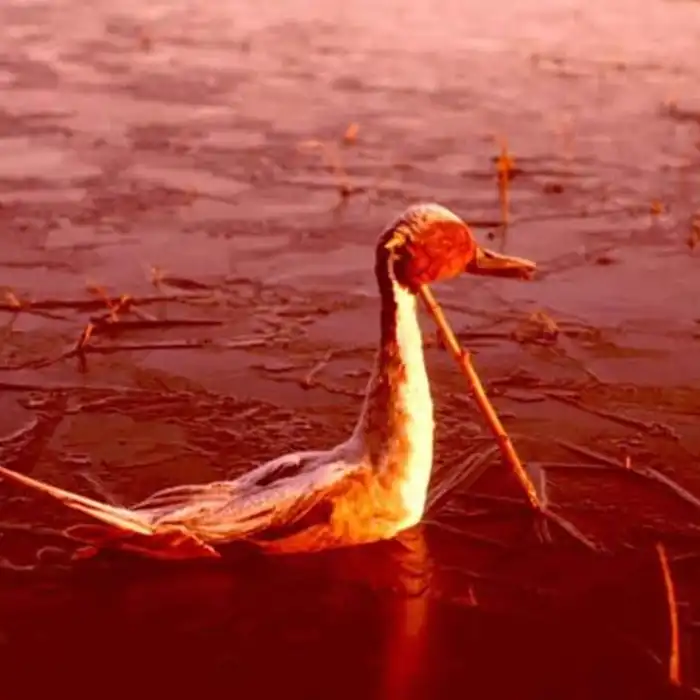Lake Natron
Exploring Lake Natron: Tanzania’s Mystical Marvel
Introduction: Unraveling Nature’s Mysteries
Nestled within Tanzania’s diverse tapestry of landscapes, Lake Natron emerges as a mesmerizing testament to the raw power and beauty of nature. Unlike its more famed counterparts such as the Serengeti and Ngorongoro Crater, this alkaline lake boasts a unique allure, drawing intrepid explorers to its shores in search of adventure and wonder.
Pronunciation and Location: Navigating Nature’s Enigma
Located in the Arusha Region of Tanzania, hugging the border with Kenya, Lake Natron, pronounced ‘Nay-tron,’ is nestled within the eastern branch of the East African Rift Valley. Positioned approximately 120 miles (193 km) northwest of Arusha city, the imposing presence of the Ol Doinyo Lengai volcano graces its shores.
Origin of the Name: A Salty Moniker
The appellation ‘Natron’ finds its roots in the lake’s rich concentration of sodium carbonate, a mineral commonly found in desiccated lake beds. Recognized for its cleansing properties, sodium carbonate, or natron, imparts the lake with its distinctive alkaline character.
Dimensions and Conservation Status: Nature’s Protected Sanctuary
Spanning an area of about 58 square miles (150 square kilometers), Lake Natron’s size ebbs and flows with the seasonal rhythms of rainfall and evaporation. While not formally designated as a national park, concerted conservation endeavors safeguard its ecological significance and delicate ecosystem.
Unique Phenomena: Nature’s Painted Palette
The allure of Lake Natron lies in its surreal red hues and seemingly inhospitable environment. Boasting pH levels exceeding 10, the lake nurtures a plethora of unique microorganisms, including haloarchaea, which impart vivid red and pink hues to its waters. Despite its foreboding reputation, Lake Natron serves as a vital breeding ground for the lesser flamingo.
Deadly Alkalinity: Nature’s Chemical Cauldron

Lake Natron’s extreme alkalinity, with pH levels soaring to a staggering 12, renders its waters caustic and perilous. Coupled with scorching temperatures surpassing 100°F (38°C), the lake poses significant hazards to both human visitors and resident wildlife.
Petrifying Effect: Debunking the Myth
Renowned for its purported petrifying effect on deceased animals, Lake Natron preserves carcasses through calcification, earning it the moniker of the “Deadly Red Lake.” However, contrary to popular belief, animals do not undergo petrification upon contact with the lake’s waters but rather become preserved by its unique chemical composition.
Geological Origins: Unveiling Earth’s Secrets
Fed by the Southern Ewaso Ng’iro River and enriched by mineral-laden hot springs, Lake Natron owes its distinctive chemical composition to the volcanic activity of Ol Doinyo Lengai. Over eons, the accumulation of salts and minerals, coupled with evaporation, has bestowed upon it its extraordinary alkaline characteristics.
Flora and Fauna: Adapting to Adversity
While seemingly inhospitable to most life forms, Lake Natron is home to resilient algae and microorganisms adept at thriving in saline conditions. Along its shores, alkaline tilapias inhabit the less saline margins, while millions of lesser flamingos flock to its crimson waters, uniquely adapted to its harsh environs.
Climate Patterns: Weathering Nature’s Extremes
Lake Natron’s climate mirrors the arid conditions prevalent in the surrounding East African Rift Valley. Characterized by scorching daytime temperatures and scant rainfall, the dry season from June to September offers the most favorable conditions for exploration.
Ideal Visiting Time: Crafting Your Expedition
For those eager to embark on a journey into the heart of Lake Natron, the cooler months from June to September provide an ideal window of opportunity. Additionally, visitors keen on witnessing the spectacle of flamingo breeding season should plan their visit between September and March, aligning with the natural rhythms of seasonal rainfall.
Speak To an Expert
Get advice and suggestions to make this your perfect trip.
Call: +255 753 142 682
Let's Chat on WhatsApp
DESIGN A TOUR
DISCOVER EXCLUSIVE TANZANIA SAFARIS
Tanzania Safari
Journey through the heart of Tanzania's wild landscapes with our expertly guided safaris
Kilimanjaro Climbing
Standing at 5,895 meters, the summit of Kilimanjaro is the highest point in Africa
Design your own trip
Let's Customize a Tour Based on Your Budget and Your Style


